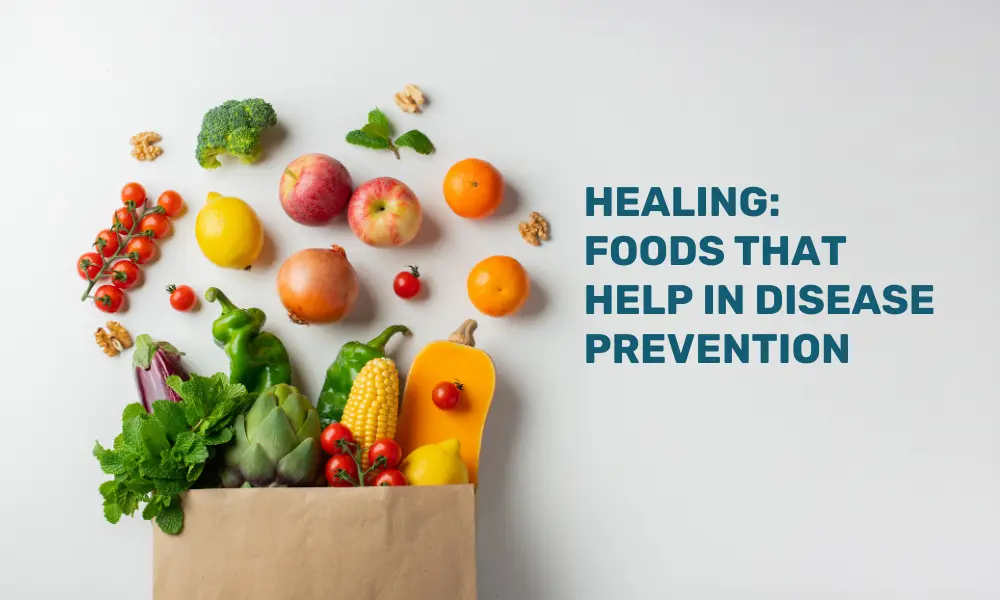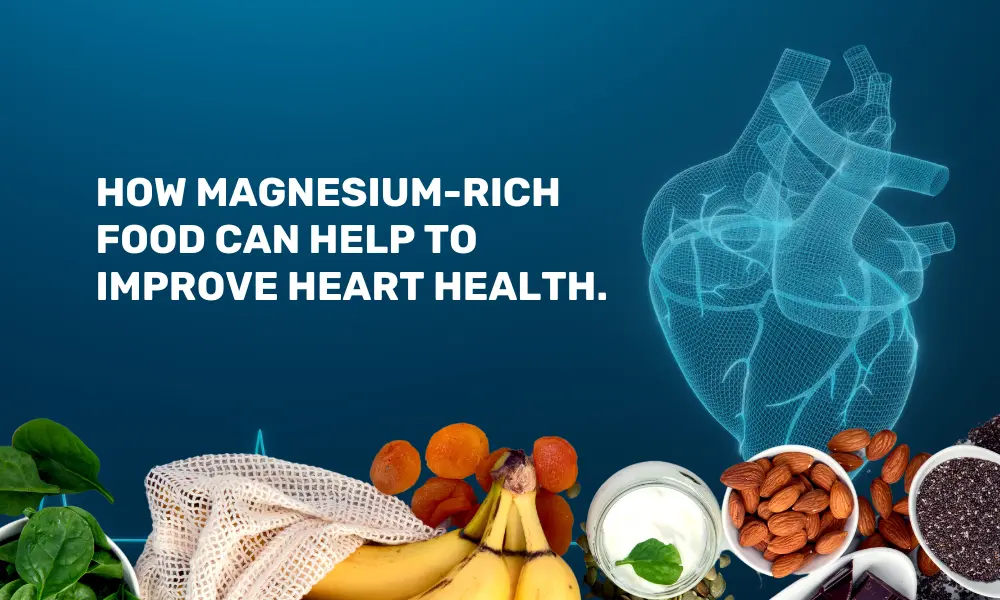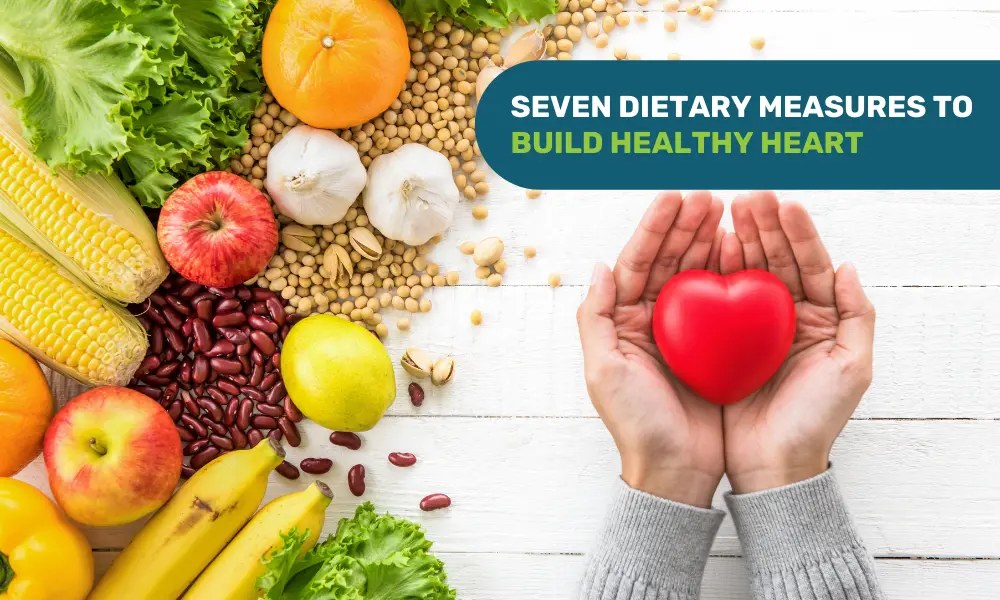What we eat can be the best and strongest medicine or the slowest poison. Our body is like a complex machinery that undergoes wear and tear with time. Understanding how certain food items can be instrumental in determining our overall health is essential. Healthy foods do not just give us nutrients; they help our bodies fight sickness, fix damage, and boost our immunity.
Our in-house expert, Dt. Aparna Pandey, MSC-Nutrition and Dietetics, shares a list of certain foods and how they help us stay well and prevent diseases:
1. Turmeric: A Natural Inflammation Fighter
Curcumin, the key part of turmeric, has a big impact on reducing swelling and fighting damage in the body. It’s good for helping with joint pain and body issues. Eating it often might lower your chances of getting long-lasting health problems like heart disease and even some cancers when you eat other good foods, too.
Tips on Including It in Diet: To help your body use it better, mix it in hot milk, veggie curry, or even smoothies with a bit of black pepper.
2. Leafy Greens: The Liver’s Closest Ally
Spinach, kale, amaranth, and methi contain lots of chlorophyll, folate, and vitamin K. These nutrients help cells grow back and clean out toxins.
The high fiber in these greens keeps your gut healthy and lowers cholesterol. This reduces the chances of having a stroke or developing fatty liver.
Clinical Note: Tell patients to eat at least one leafy green veggie every day to protect their liver and heart.
3. Berries: Small Fruits with Huge Advantages
Blueberries, strawberries, and Indian gooseberries (amla) contain lots of polyphenols and vitamin C. These substances fight free radicals and boost your immune system. These fruits slow down aging, help manage blood sugar, and lower oxidative stress. This stress can lead to heart problems and brain decline.
Tips on Including it in Diet: Mix them into smoothies or oatmeal. You can also eat amla raw or drink its juice to get the most antioxidants.
4. Go for Whole Grains: Keeping Blood Sugar and Cholesterol in Check
Whole grains like oats, brown rice, quinoa, and millet give you complex carbs, B vitamins, and soluble fiber. These nutrients control your glucose and fat levels. They keep your gut healthy, reduce swelling in your body, and help you maintain a healthy weight. This matters a lot to prevent type 2 diabetes and obesity.
Advice: Try traditional Indian grains like bajra and ragi. They give you extra calcium and iron.
5. Nuts and Seeds: Defenders of Your Brain and Heart
Almonds, walnuts, flaxseeds, chia, and pumpkin seeds pack omega-3 fatty acids, magnesium, and antioxidants. These nutrients help lower your risk of heart problems. They boost brain function, cut down bad cholesterol, and help control blood pressure without drugs.
Diet Tip: Eating a small handful (10–15 g) of mixed nuts and seeds every day can boost your heart and brain health.
6. Fermented Foods: To Boost Gut and Immunity
Curd kanji, idli, and homemade pickles contain probiotics that diversify gut microbiota. A well-balanced gut flora helps the body absorb nutrients better, strengthens the immune system, and reduces inflammation. This influences many aspects of health, from how we feel to how our body processes food.
Diet Tip: Fermented foods should be eaten every day for people with stomach problems, Digestive problems, or those who have taken antibiotics before.
7. Garlic and Onions: As Natural Cleansers
These two have sulfur compounds that help the liver function better and clean out all toxins. They also help fight off harmful microbes. Garlic helps in reducing the blood pressure parameter, makes blood flow better, and cuts down on plaque in arteries, which is necessary for the heart health.
Note: After chopping garlic, let it sit for 10 minutes before cooking. This keeps allicin, its main helpful ingredient, intact.
8. Citrus Fruits: Give Your Immune System and Skin a Boost
Oranges, lemons, sweet lime, and grapefruit pack a punch of vitamin C, bioflavonoids, and potassium. These nutrients have an impact on immune function and help repair skin. They also make it easier for your body to absorb iron, keep scurvy at bay, and cut down on how often you catch colds and the flu.
Quick Fix: Kick off your morning with warm lemon water or toss some citrus slices into your salads and water.
9. Green Tea and Herbal Teas: Antioxidant Tonic
Green tea is teeming with catechins such as EGCG, which defend against oxidative stress, boost fat metabolism, and lower cancer risk.
Herbal teas like tulsi, ginger, and cinnamon tea aid breathing and balance blood sugar levels.
Practice Tip: Suggest to clients that they substitute sugary beverages with herbal teas for effective hydration and recovery.
10. Water-Dense Fruits and Vegetables: Natural Detoxifiers
Vegetables and fruits such as cucumber, watermelon, lauki (bottled gourd), and coconut water flush out toxins and provide hydration to the body. They are crucial for kidney function, decrease water retention, and regulate blood pressure by maintaining sodium balance.
Hydration Hack: Suggest having these particularly during summer or after exercise to replenish electrolytes naturally.
The Bottomline
Foods that support healing are not just about nutrients but function, synergy, and long-term vitality. They are not just preventive foods against inflammation, metabolic disease, immune disease, and degenerative disease, though they certainly are those things. Food is the strongest investment a person can make in their future well-being. Make good choices! For more such nutritional tips – CLICK HERE!
This article is meant for informational purposes only and must not be considered a substitute for professional advice.





